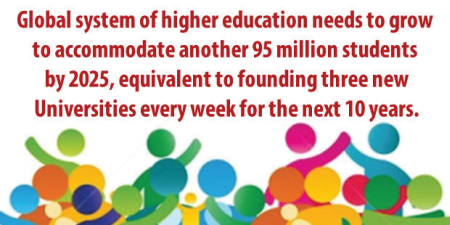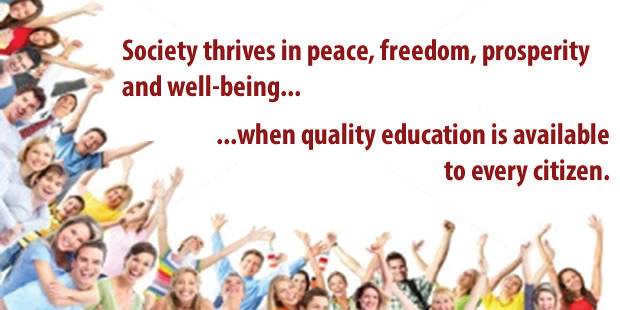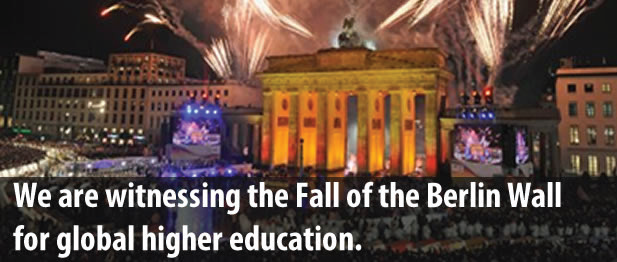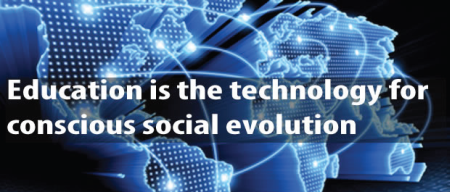WUC was founded in 2013 by a consortium of leading international NGOs to promote development of accessible, affordable, quality higher education for the whole world. The consortium is open to all types of stakeholders willing to collaborate in a working alliance to develop effective solutions to the complex global challenges affecting different communities and nations. WUC is a non-profit, nongovernmental, international, interdisciplinary, intersectoral organization dedicated to a human-centered approach to development emphasizing the centrality of human rights, human capital, and human welfare. |
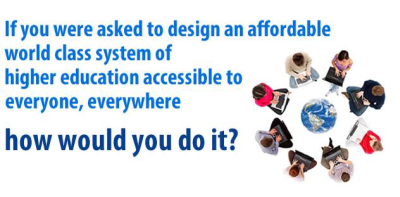
|
|
Charter Members Meet at Library of Alexandria – February 12-14, 2014
|
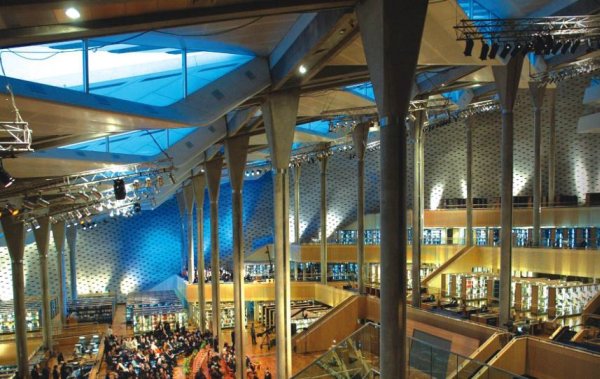
|
The Library of Alexandria, one of the world’s greatest repositories of knowledge, hosted the first meeting of the Charter Members of the World University Consortium. This meeting follows the “World Academy Forum on Global Higher Education” at the University of California at Berkeley in Oct 2013 at which the launching of WUC was endorsed by a leading group of educational innovators. The articles in this issue are a report on proceedings of the meeting.
|
|
|
|
Emerging Opportunities in Global Higher Education
|
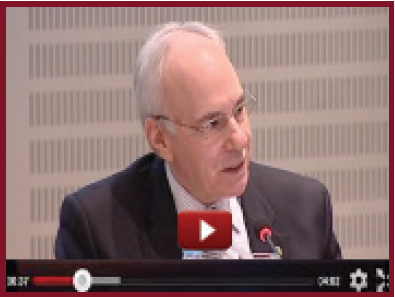 Garry Jacobs Garry JacobsThe importance of a quantum leap forward in the quantity, quality and content of higher education is evident and urgent. It has prompted the Charter Members of The World University Consortium (WUC) to issue a call for a rapid and radical transition toward a new paradigm in global Higher Education (HE). Yet the challenges are immense. The inertia and resistance of conservative social forces are forbidding. This makes such a call appear utopian and unrealistic. After careful examination, the participants of the recent WUC meeting in February 2014 in Alexandria agreed that a variety of factors present unprecedented opportunities for revolutionary change in higher education at this moment in history and justify the enthusiastic pursuit of a paradigm change.
Accessibility: Problems can themselves generate opportunities. First and most evident of the emerging opportunities is the enormous and ever-mounting pressure of suppressed demand from the world’s youth. In almost all countries today, the demand for access far exceeds the capacity of the system. Moreover, that demand is expected to skyrocket in the coming decade as aspirations and expectations continue to rise. The existing system, already fraught with strong budgetary pressures and high faculty vacancy rates, is incapable of meeting the soaring demand and will necessarily have to turn to new models and more effective delivery systems. No democratic society can ignore or resist the incessant demand for more and better education.
Quality: There is also growing recognition of an equally great need to radically overhaul the quality of education everywhere. The quality gap between the top colleges and universities and the prevailing average is immense and ever expanding. Even the best of the best are failing to meet the needs of rapidly changing employment markets and rapidly evolving social conditions.
Technology: The nascent revolution in open-access, on-line education is in the early stages of transforming one of society’s oldest, most conservative institutions into a hotbed of innovation with momentous consequences for the future of humanity. On-line courses are the cell phones of future education. MOOCs are the Model-Ts of future universities.
Instructors: The traditional role of the instructor is being challenged by emerging technologies, online and hybrid delivery systems which enable information to be delivered automatically at any distance in space and time. Moreover, technology now makes it possible for the world’s best instructors in every field to be accessed by students everywhere. It also opens the field to instructors from outside the university system. The severe shortage of qualified instructors can be overcome by engaging retirees, professionals and those with a wide range of practical experience to produce quality, innovative courses for delivery on-line.
Interactivity: We all learn best when we teach others, yet current methods still place emphasis on feeding or pushing knowledge from the instructor to student rather than releasing the
|
student’s owninnate curiosity and capacity for learning through peer to peer exchanges. Active, participative learning can double effectiveness.
Learning about Learning: Ironically, the process of learning itself remains an undeveloped subject. We know a lot about how to teach but very little about how people actually learn. A massive effort is needed to rediscover the fundamental principles of education and recast them in today’s content. That means adopting flexible methods suited to the different ways in which different people learn best.
Independent Thinking: The instant availability of information at our fingertips compels us to shift the focus from the object (knowledge) to the subject (student) and place emphasis on methods designed to fully develop the student’s critical and creative faculties, rather than merely trying to stuff empty heads full of information.
Transdisciplinarity: Humanity’s persistent problems reflect inherent deficiencies in our approach to reliable knowledge. Never has there been a greater need and opportunity to break down the structural rigidities and intellectual boundaries between disciplines to approach real-world issues from a comprehensive, integrated perspective.
Customization: Like consumer products, higher education has become increasingly massified and standardized, at a time when the world urgently needs greater diversity of perspective and understanding to overcome the problems generated by uniformity and conformity. Emerging technology now makes it possible to create flexible innovation delivery systems catering to individual needs.
Relevance: Most education still resides in ivory towers and air tight compartments at a time when society desperately needs new approaches to equip youth with the knowledge, interpersonal skills and values needed for individual accomplishment, leadership of change and global citizenship.
Lifelong Learning: Given the rapid pace of social change and the frequency of changing positions and occupations, a new paradigm is needed in which education and employment constitute a double-helix, proceeding in tandem throughout life.
A revolution in HE is upon us and no force or agency on earth can ultimately prevent it. The question is not whether change is in the offing, but whether that change will be in the desired and most desirable direction. WUC was established to attempt to steer the momentum toward the best possible future. No single organization, nor even a consortium of institutions, can hope to accomplish this transition by their own power. But it is conceivable that a consortium of committed stakeholders which includes universities, research institutes, NGOs, corporates and government agencies joining together and working in concert with other groups may be able to act as a powerful catalyst, pointing the way toward a better future.
Garry Jacobs
Chair & CEO, World University Consortium;
CEO, World Academy of Art & Science;
Vice-President, The Mother’s Service Society
|
|
|
|
Need for a World University*
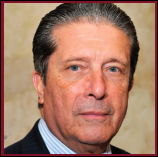 Federico Mayor Zaragoza Federico Mayor ZaragozaA progressive rise of knowledge together with a global consciousness and citizenship, women empowerment and digital facilities for expression and for participation, have provided the basis for a “new beginning”, for the transition from an economy of speculation, productive delocalization and war to an economy based on global, human and sustainable development (food, water, health care, attention to environment, education for all).
All human beings are equal in dignity, endowed with the distinctive capacity to create, to invent, learning to know, to do, to be, to live together, to dare, to undertake.
The historical shift to a new paradigm, from force to word, that is approaching the academic and the scientific communities must be at the forefront of the people’s mobilization. An on-line higher education for all – a World University – providing knowledge, prospective faculty and ethical values based behaviour is today one of the indispensable pillars to build the future that humanity deserves.
Federico Mayor Zaragoza
Former Director General, UNESCO;
Director, World University Consortium;
Chairman, Foundation for a Culture of Peace
|
|
|
World Virtual University
When the World Academy of Art & Science was founded in 1960, its distinguished members had the foresight to conceive of establishing an informal ‘world university’ long before advances in transportation, communication and global politics made it practicable. The high demand for Higher Education today and the capabilities offered by new technologies make possible for the first time development of a truly global system of higher education, which can make world-class quality education accessible to all humanity.
The use of distance education and MOOCs provides a viable means to extend quality education worldwide using distance education or a combination of physical and distance learning methods.
The effort to establish an effective global system will confront serious challenges:
- The high drop-out rate on distance education courses: The courses will have to adopt advanced techniques to increase interactivity between faculty and students and peer to peer exchanges; improved methods for monitoring, engaging and supporting students; and hybrid models that combine classroom and distance learning.
- Considerable investment will be needed to improve access to the internet, which varies considerably in different regions of the developing world, such as in Africa, Latin America, Middle East and Asia.
- Language barriers have to be overcome. English is indeed a lingua franca but many people around the world cannot read/understand it. Although automatic translation services are being constantly improved, many students cannot benefit from the large MOOCs already available, since they are free of charge but offered only in English. A massive effort will be needed to render quality teaching materials in local languages.
- Certification of on-line courses is another challenge that is yet to be resolved. MOOCs are now spreading from the USA to Europe and developing countries, but systems for certifying the quality of on-line learning lag behind.
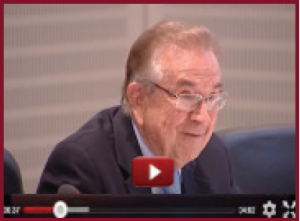 Heitor Gurgulino de Souza Heitor Gurgulino de SouzaBrazil offers a practical example of both the opportunities and challenges in higher education today. Economic and social reforms have led to major improvements in living standards and the demand for education. The quality of public education has also improved substantially. Yet only 17% of 18-24 year-olds are presently enrolled in higher education, the university dropout rate is 50%, and less than 10% of the population holds a university degree. On the other hand, online education is a key emerging market waiting to be tapped. The number of students enrolled in distance learning courses in Brazil increased by 61% from 2011 to 2012. With only 2% of the nation’s population of 200 million speaking fluent English, there is a pressing demand for creating MOOCs in regional languages.
The WAAS conference at UC Berkeley in October 2-3, 2013 provided an excellent framework for the activities of the Consortium. The meeting at the Library of Alexandria on February 12-14, 2014 formalized the Consortium’s institutional basis, mission and objectives. Plans are now already underway to reach out to a diverse group of stakeholders around the world – universities, research institutes, governments, NGOs – and corporates and to organize a series of larger international conferences in Europe and Asia on this subject. This is only the beginning.
Heitor Gurgulino de Souza
President, World University Consortium;
President, World Academy of Art & Science;
Former Rector, United Nations University
|
|
|
Global Higher Education Issues
Future Teaching Methods
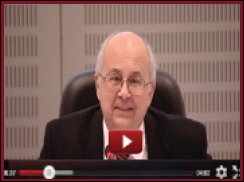 Ismail Serageldin Ismail SerageldinMethods of teaching in the last fifty years have been almost totally confined to formal instruction in classrooms. Lectures, tutorials and supervised work have been the staples of education from time immemorial. We have barely started to explore guided learning through such instruments as distance learning, the Open University and modular adult education classes. I say that noting that the open university has been around for more than four decades, and that Massive Open Online Courses (MOOCs) are now a reality through the experience of the Khan Academy (which has more than 3.9 million registered students), and the presence of Udacity, Coursera, edX and other offerings.
We are just beginning to see the benefits of flipped classroom instruction where the lectures are on video and the students can learn at their convenient
time (which also allows students to replay certain parts as many times as they want) and the contact hours will be spent with the teacher working with the students, at problem solving and clarifications (the functions that were traditionally left to homework to be done by the student on their own time). We have barely scratched the surface of the potential that exists in self-learning. New “games” or game-like approaches that allow youngsters to gradually master skills by solving ever harder problems will use the same self-encouragement mechanisms and inherent reward mechanisms that current and conventional games do in making the player move from level to level by shooting ever faster and killing more adversaries. The software advances and the private sector’s interest to develop such new educational software along with the possibilities of having tablet computers available in India under $40 open up enormous possibilities that will allow us to do much more in guided learning, and to help a thoroughgoing revolution in self-learning.
Although I believe that formal instruction will continue to be important, it will increasingly be supplemented by flipped classroom instruction, MOOCs, games and both guided learning and self-learning will be enhanced through myriad offerings. It will not only benefit the youth in their school and college years. Driven by curiosity and self-interest, the lifelong learners of the future will alternate between broadening themselves or pursuing hobbies on the one hand, and acquiring marketable skills on the other. The offerings for both will be there.
Ismail Serageldin*
Director, Bibliotheca Alexandrina;
Director, World University Consortium
|
Important Issues in Global Higher Education
|
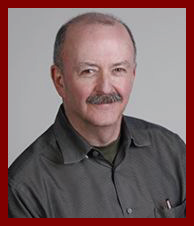 Neal King Neal KingThe World University Consortium is addressing issues that are frequently discussed by the International Association of University Presidents.
Access, quality assurance, affordability, accreditation, and the need for a new paradigm in global tertiary education are some the core issues we need to address to evolutionize education, which goes hand in hand with the evolution of society.
In the work of IAUP with the Qatar Foundation, in both the annual The World Innovation Summit for Education (WISE) conference and the annual leadership program for new university presidents from the developing world, we also find an emphasis on the need to establish a solid K-12 foundation for tertiary study and success, the need to emphasize access for girls and women, and the need to “level the playing field” in any emerging new paradigm so that the developing world is equitably represented together with the first world. Correlations are often cited at WISE between levels of education achieved and infant mortality, overall health, lifespan and standard of living, tolerance for difference and the economic health of the society overall.
|
Two prominent topics emerge: the need for partnerships and the sharing of resources (human, intellectual, technological and monetary) and the need to develop a truly lived global citizenship in emerging generations of young people around the world, which also implies a re-education of the current professoriate worldwide so that the ingredients of global citizenship are imbedded in curricula and pedagogies internationally. The need to counter regionalism, sectarianism, and provincialism is a key driver in the imperative to inculcate and encourage instead a global citizenship that is respectful of all peoples and celebratory of all cultural heritages.
IAUP was a co-developer with the UN of the United Nations Academic Impact (UNAI), ten guiding principles for higher education worldwide. The UNAI calls on
all signatories – now numbering nearly 1000 tertiary institutions worldwide – to develop an applied project, involving students, within their institution that brings the core principles to life rather than allowing them to reside simply as academic concepts. This element of the UNAI design parallels closely the discussion by WUC regarding the issue of relevance, recognizing the need for applied and service learning as core parts of university curricula.
Neal King, President,
International Association of University Presidents;
Director, World University Consortium
|
|
Educating Youth for Tomorrow
|
|
Each generation seems to want to change the course of life and the laws of civilization, yet does not succeed in this aspiration. It is not that the older generations are incapable of great change, but their ideas are juxtaposed next to those of younger generations seeking change, who often want to go in a different direction. Both perspectives cannot always coexist.
Education is a catalyst for important, sustainable change in our society. It is a tool that should help youth chart their course: not just by training to “succeed” in the current system but inoculating in them a broader world vision and greater capacity for critical thinking.
In 10-15 years, the world may be completely different.We are looking at communications and technology revolutions occurring in very abbreviated time frames. Soon, billions of people will interact via a fast data-transferring Metaweb, and it will change social standards as well as human behaviour patterns. Integrated global economies functioning as holistic entities will spur a deep reframing of global governance. A new balance of political, economic and military power will shift “centres of gravity” from West to East, from North to South, and nationstates will become private actors. An evolving array of science and technology, including biological, biochemical and genetic technologies, combined with human enhancement, will test human capacities well beyond our traditional limits.
Perhaps most critical of all for the rapidly changing future will be the relationship forged between the aggregate powers of human civilization and the Earth’s ecological systems on which humanity depends, as Earth’s future depends on our actions.
Rooted in positivist philosophical trends, modern education systems function more as “assembly lines” and are not currently prepared to face future challenges. “Resources and capital” are turned into “products” and intellectual flexibility becomes a thing of the past, as intellectual capacity development is substituted by combinatorics (ability to choose out of 3-5 options) and students are turned into objects of educative processes, coerced into thinking about the world from one perspective.
For a sustainable future, our education systems must establish four basic elements to prepare us for success: humanisation, individualisation, student “subjectivation” and synthetic education.
The humanities and arts should guide educational behaviour. 75% of the Nobel laureates in science had expansive educational knowledge and were proficient in music or literature. Students should have a well-rounded education, and part of that global view comes from participating in humanities coursework, including students focusing on math and science. Technology used to achieve higher learning should not be the end goal of education, but rather an instrument to get there.
The introduction of certain social media networks has reduced the aesthetics of language into a jargon of symbols.
|
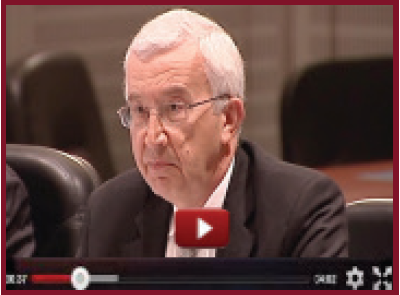 Alexander Likhotal Alexander LikhotalLet us use technology not to dumb us down but to further enlighten our potential for learning.
Individualised education should be understood not in terms of convenience (I get it when it’s convenient for me) but in terms of motivation and quality. It should be “made to measure” based on each student’s academic performance. The education reform must not get locked on “distant education” using the same old methodology (we used to have it on TV and on tapes). Students can become motivated through the use of interactive models where they can have face-to-face conversation with relevant educators and influential people all over the world. The quality of this individualised education could also come in the form of a “High Level Course” marketplace, in which authors and university teams can compete for the best course products.
Once students can view themselves as subjects of learning, rather than passive objects of teaching, critical thinking skills can be developed. To develop this more complex form of thinking, giving students access to the best ideas coming from the most forward thinking institutions and professors should be a consideration. This can be achieved through remote access teaching, such as different online modules, or students could use a vast interconnected network of university Web resources to access knowledge from afar. Using online educational tools can also make student learning faster, more efficient and of higher quality. For instance, students completing work in a quicker time frame can progress by taking learning modules based on difficulty and speed.
Finally, the integration of what were once independent and distinct teaching disciplines, such as biology and chemistry now converged into biochemistry, is revolutionising the way in which former education models are taught. The future of education must be flexible enough to embrace the fusion of concepts and so it is important that specialisation in a subject be coupled with a broader perspective of border disciplines, opening up many more opportunities and experiences to students.
Alexander Likhotal
President, Green Cross International;
Director, World University Consortium
|
|
WUC – A New Paradigm in Education
All Together Now
|
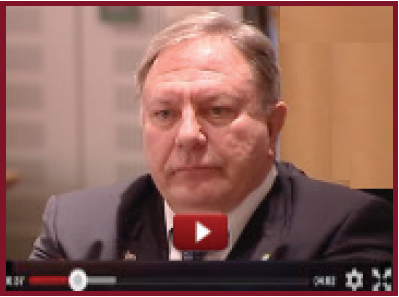 Alberto Zucconi Alberto ZucconiWUC is a non-profit university consortium, very different from traditional university consortia since it includes all stakeholders willing to participate in a working alliance to develop an integrated paradigm of scientific knowledge and best practices to develop effective solutions to the various complex global challenges affecting local communities and different nations.
WUC will bring together not only top universities, but all the stakeholders for the creation of a process that generates effective understanding and effective solution for the problems facing society today.
WUC will develop a new paradigm in education and in university consortia organizing the largest action research ever carried out in order to develop sustainable worldclass research, education and knowledge.
Nobel Prize recipient and World Academy Fellow Paul Crutzen reminds us that nowadays human activities are the main variable impacting the planet’s life forms and that there are mounting challenges to be faced. There’s an urgent need to foster new and solid bases for a sustainable global society by re-examining the dynamics of global economic, political, human, social and cultural constructs.
Education plays a crucial role in the social construction of reality. It is more and more evident that we need a paradigm change in education in order to enable people to deal effectively with the mounting challenges facing humanity.
WUC aims to create a process of knowledge creation and sharing through an active international network to benefit global society, to enhance diversity, to share ideas and expertise, and to learn international best practices from each other, with shared commitment to shared values in education grounded on equal rights and opportunities, freedom, creativity and excellence in research, scholarship and sustainable education.
WUC aims to address cultural, environmental, social and political issues of common interest to world communities by promoting collaboration between universities, local governments, business and non-profit communities.
WUC will create a mental space where universities and stakeholders can more effectively respond to the present urgent needs of society at the local andglobal levels and will be
|
empowered to effectively cooperate and create new knowledge and opportunities to untap the full potentials of human capital.
WUC will collaborate with all the stakeholders to develop a passport of competencies, a way by which degrees and competencies will be validated and used around the world.
WUC will create synergistic, interdisciplinary, intersectoral, inter professional and intercultural networks of networks.
With the help of technology we will conduct major international conferences with all the interested stakeholders participating in person and an e-portal that streams video all over the world.
We will involve and create many occasions for UN Agencies, NGOs, public and private organizations, industrialist and labor unions , teachers associations, university professors associations, student associations, pedagogic associations, sustainable entrepreneurs, technology firms, Academies of Science, public opinion influencers and others to meet, collaborate and crosspollinate.
WUC will generate joint research projects, joint project development among students, professors and experts in interdisciplinary, intersectoral and intercultural cooperation for the development of a new, integrated paradigm of scientific knowledge and education. WUC will create and share a global vision, similar values and a commitment to educating future world leaders.
WUC will empower all the stakeholders to create and share new knowledge to improve human and environmental living conditions, building bridges across boundaries of diverse cultures and academic disciplines, promoting awareness of the frontiers of human understanding, creating new knowledge through collaboration in research and innovation.
Stakeholders will be actively involved in this strategic change process and contribute to the betterment of their local and national communities, to a renaissance of scientific and educational excellence and to fulfill their core values and mission.
Alberto Zucconi
Secretary General, World University Consortium;
President, Person-Centered Approach Institute (IACP);
Trustee, World Academy of Art & Science
|
|
WUC Objectives & Activities
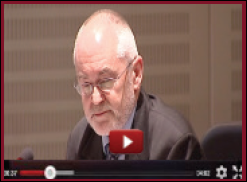 Sigmund Grønmo Sigmund GrønmoHigher education institutions are under pressure to focus less on quality and more on efficiency based on quantitative measures. Universities become financially dependent on fulfilling such quantitative efficiency requirements. Under such conditions there is less and less time and space available for critical thinking. Among professors, academic environments and universities there seems to be a growing concern about these aspects of the current development of higher education. This concern is shared by many individuals, organizations, institutions and corporations outside academia. Thus, there is not only a need for change in higher education, but also a great potential to support the mission and perspectives promoted by WUC. WUC should mobilize and involve as many of these potential members and partners as possible, starting with the most enthusiastic and devoted supporters.
WUC has specified seven objectives for its work, listed from 1 to 7 in the WUC charter. In the figure below the objectives are rearranged and classified in five different types:
|
TYPE OF OBJECTIVE
|
OBJECTIVE
|
|
Exchanging Ideas
|
Global Forum: Create a worldwide forum where all the stakeholders can meet, interact and create new networks, partnerships and projects.
|
|
Promoting Ideas
|
Person-centered: Promote person-centered approaches that emphasize self-guided learning, critical and original thinking, inspirational forms of instruction, learning to learn, trans-disciplinary contextualized perspectives, learning by teaching and sharing with others, edutainment and experiential learning.
|
|
Identifying Practices
|
Best-practices: Identify global best practices (and develop effective global models and strategies to improve accessibility, affordability, quality, innovation and relevance in higher education appropriate to the needs of the 21st century).
|
|
Exploring Alternatives
|
Hybrid Systems: Explore new models of online and hybrid delivery systems designed to facilitate learning through teacher-student and student-student interaction.
|
|
Developing New Alternatives
|
Value-based: Develop transcultural and culture-specific methods, courses and content reflecting universal human values.
Open Learning Systems: Develop innovative, open learning systems and more effective models that extend the reach of quality higher education to people of all age groups globally.
New Metrics: Enhance the learning process through research, development and application of advanced instruments for measurement and evaluation of educational processes.
|
 In discussions among the WUC founders a number of activities have been suggested for the Consortium. In the following figure these activities are classified in relation to the five types of objectives, indicating three main categories of activities:
|
TYPE OF OBJECTIVE
|
OBJECTIVE
|
ACTIVITY
|
|
Exchanging Ideas
|
Global Forum
|
- Develop an Internet portal
- Conduct international conferences
- Create a clearing house
- Promote learning communities
|
|
Promoting Ideas
|
Person-centered
|
|
Identifying Practices
|
Best-practices
|
- Establish an online World Virtual University (WVU)system
- Provide platforms for
- WAAS Fellows and other individuals and organizations
- Retired teachers and other retirees
- Experts and experienced professionals
|
|
Exploring Alternatives
|
Hybrid Systems
|
|
Developing New Alternatives
|
Value-based
Open Learning Systems
New Metrics
Best practices
|
- Conduct research on alternative approaches
- Develop innovative courses, based on research
- Develop learning platforms
- Develop criteria for evaluating courses
- Develop and apply research tools and methods in the field of higher education
- Develop inventories and measures of work-related competencies
|
|
The logic of these classifications is that the objectives and activities are ordered according to increasing ambitions. Moving downwards in the figures, the objectives and activities become more and more ambitious. Exchanging and promoting ideas are the least ambitious goals and activities, identifying and exploring various alternatives within higher education are somewhat more ambitious, whereas developing new alternatives is the most ambitious goal.
|
Developing new alternatives is more demanding. The most ambitious goals are also most challenging. While the least ambitious and challenging activities may be carried out by WUC alone, the most ambitious and challenging objectives will require more collaboration and interaction with other partners.
WUC is already in the process of exchanging and promoting ideas. Identifying practices and exploring alternatives should be emphasized
|
as the next stage in the WUC activities agenda. Developing new alternatives, in collaboration with member universities and partner institutions, would be a third stage of an action plan for WUC. This development may be demanding, but it will also be exciting, and there are no alternatives to ambitions!
Sigmund Grønmo
Chair of the Council, Inter-University Centre, Dubrovnik;
Former Rector, University of Bergen
|
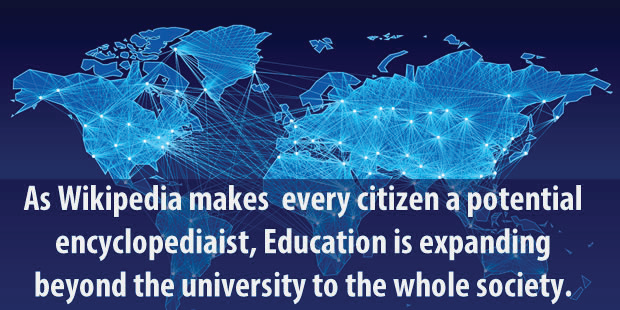 |
Value-based Education
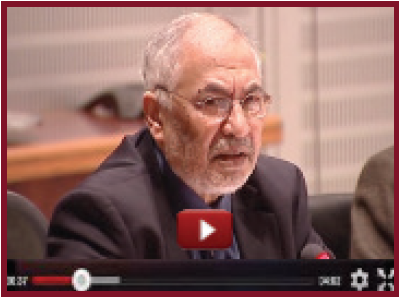 Winston Nagan Winston NaganThe value guidance necessary for a new paradigm in higher education should be made explicit as the fundamental principle upon which the WUC initiative is based. The basic principles are obvious and not particularly distinctive or innovative. They acquire real meaning and salience when put into the context of the predicted future demographic crisis for higher education globally. If it is true that there may be upwards of 25 million young people who will have no place in higher education around 2025, then it is critical that a global initiative be undertaken to seek realistic solutions for education and educational values at a global level.
There must be a recognition that higher education in particular is notoriously difficult to reform within sovereign states, let alone from a global perspective. Universities are either the bearers or the appropriators of tradition which value the reality or the myth of continuity and tradition. Apart from institutional inertia or stagnation, one should also account for the successful personalities who populate the institutions of higher learning. Successful intellectuals, scientists and great scholars invariably emerge with an expanding ego perspective. Since they generally know a great deal, their ability to absorb change has to confront the confidence of an expanded ego satisfied with its own accomplishments.
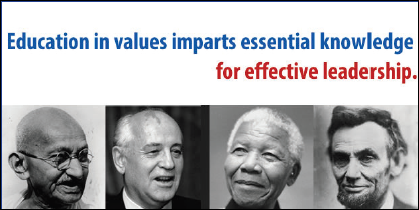 A commitment to the values behind the UN Charter and the International Bill of Rights leaves a great deal of scope for flexibility and diversity in the existential world about the role and potential of institutions cross-culturally that can be developed and evolved in ways that are congruent with the basic values upon which the current system of world order is based and projected in terms of a new and justifiable paradigm.
Winston Nagan
Chair of the Board, World Academy of Art & Science;
Chair, Program Committee, World University Consortium;
Director, Institute for Human Rights, Peace & Development,
Levin College of Law, University of Florida
|
Reinventing Education
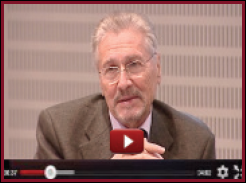 Emil Constantinescu Emil ConstantinescuWe must reinvent the school to preserve and harness students’ passionate interest for exploration, of knowledge and the new. The ideal education puts in service of the didactic process colourful, childhood fantasies and the explosive inventiveness of adolescence. It will be full of the joy of learning.It integrates and does not compete with the almost infinite information available today. Today’s society is fast developing. We must reinvent education so that it will not exclude, but include. It would take into account every child’s and teenager’s talents, it would offer him or her a customized path that will yield his or her personality to the fullest.
A borderless world in education involves redefining institutions. Global issues, often diseases, require global responses. In order to build a new concept of global solidarity in the field of higher education, we must be able to see globalization not only in its technological aspect, but also in its anthropological one.
In order for higher education to answer the great challenges of 21st century democratic societies, we need good managers from our present educational system and leaders able to change the present educational system. But even more is needed. The world financial crisis represents a historical opportunity for a new political project to organize global society. It is the right moment for representatives of the academic environment, who are free of the pressures to earn profit or win popular votes to which businessmen and politicians are subject, to build a new cultural project to address 21st century uncertainties. Managing uncertainty can be done only in an open society.
‘Gnothi seauton’ (know yourself), states one of the precepts decreed by Apollon at Delphi and preached by Socrates in Athens. The present world crisis brutally commands us to choose between to have or to be. A higher education for a democratic 21st century society may create a new balance between power and knowledge that would reshape a framework inside which each individual can be as well as become.

|
Emil Constantinescu*
Former President, Romania;
President, Academy for Cultural Diplomacy;
Director, World University Consortium
|
|
Paradigm Shift in Education
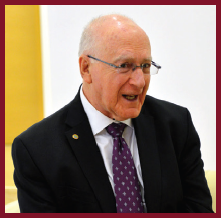 Ivo Šlaus/span> Ivo Šlaus/span>The contemporary world, which is fast changing and characterized by uncertainties, mixes new reality with obsolete behavior and social, economical and political prejudices. The incompatibility is clear (destruction of natural, human and social capitals, threats by weapons of mass destruction);we don't know how to bring about a new paradigm or the strategies needed to achieve it. New, creative, out-of-the-box ideas and concepts are required. Systematic, structured system of generating and testing such thinking is provided by Higher Education (HE), notably doctoral studies. Therefore, new paradigm demands higher education! |
It is estimated that there are now about 150 million tertiary education students and UNESCO projects that are projected to increase to 262 million by 2025. The USA has now 1.7 million PhDs; including MDs and other related people, the number increases to 5.4 million or almost 3% of the population of those over 25. The average annual growth in doctorates from 1998 to 2006 shows an interesting trend: China 40%, Mexico 17.1%, Denmark 10%, India 8.5%, South Korea 7.1%, Japan and Australia 6.2%, UK 5.2%, USA 2.5%. These numbers indicate that it is impossible to continue with the model of HE that existed so far. Massive Open Online Courses (MOOCs) have already started revolutionizing the field, and hybrid models keep emerging. The need for new PhD programs, credible accreditation, deeper and deeper understanding, unified, integrated comprehension juxtaposed with the need for an all-encompassing social education requires a new paradigm in HE. Stig Stromholm, Fellow of WAAS and former President of Academia Europaea once observed that, universities have a mission and a responsibility which go far beyond the task of providing industry with efficient employees, marketable ideas or science-based solutions. The mission is to produce mature, independent, critical, responsible personalities, who are not tools in the service of Church, State, party, business or trade unions. The scholars are treated with respect if they maintain their dignity and uphold their own standards against those of the world at large. In those cases where the conflict emerges, they are treated with contempt, and soon enough as simple goods, if they accept the rules of the outside world.
Ivo Šlaus
Honorary President, World Academy of Art & Science;
Director, World University Consortium
|
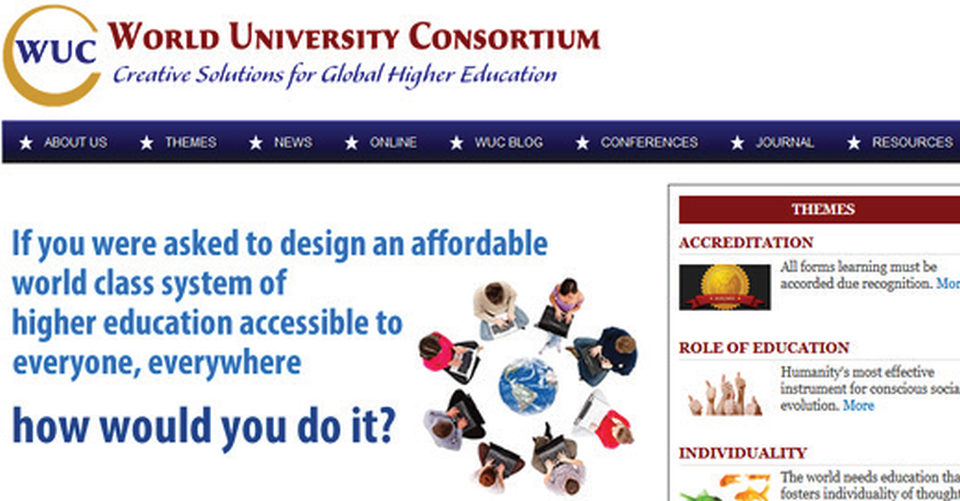
|
Need for a Global Survival Curriculum
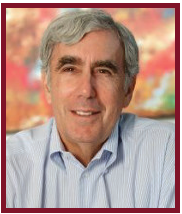 David Krieger David KriegerHumankind has lived uneasily with nuclear weapons for nearly 70 years.These weapons do not make us safer. In fact, they threaten the very survival of humanity, including even that of their possessors. The survivors of Hiroshima and Nagasaki have long been warning humanity that we must abolish these obscenely powerful weapons before they abolish us. Yet, despite promises and legal obligations of the
|
nuclear weapons states to pursue negotiations in good faith for a cessation of the nuclear arms race at an early date and to nuclear disarmament, more than 17,000 of these weapons still exist on the planet and some 2,000 of these remain on high alert ready to be fired in moments. One nuclear weapon could destroy a city, a few nuclear weapons could destroy a country, a hundred nuclear weapons could bring on a nuclear famine, a few hundred nuclear weapons could end civilization, and a larger nuclear war could lead to the extinction of most or all complex life on the planet.
In the Nuclear Age, our technologies have become powerful enough to destroy humanity. This applies not only to nuclear technologies, but to other powerful technologies as well, such as the burning of fossil fuels for energy, which is impacting the Earth’s climate with predictably dangerous consequences for planetary life. Other great global issues, in addition to nuclear war and climate change, include population growth, pollution of the oceans and atmosphere, food and water shortages and maldistribution, nuclear wastes, inequality of resources, poverty, terrorism and war as a means of resolving conflicts.
All great dangers in our time are global or potentially so, and consequently their solutions must also be global. No country, no matter how powerful, can
|
solve global problems alone. We are all dependent upon one another for survival.
One critical missing element in the university curriculum is a focused awareness of the great global dangers of our time, dangers that threaten civilization and the future of the human species. To fill this vacuum, I have suggested a universally required course, “Global Survival 101.” Such a course would provide an introduction to the great issues of global survival in the 21st century. It would raise awareness of these dangers and educate students on key elements of world citizenship – including knowledge, responsibility, stewardship and participation – needed to safely navigate through and end these threats.
I would envision such a course to be solutions-oriented, and to provide hope that, with cooperative efforts, global solutions are possible. Present generations must be a voice for and must act for future generations that are not yet here to speak and act for themselves. Based upon such a curriculum element, the leaders of tomorrow must step up and become the leaders of today. The World University Consortium could pioneer in establishing such a course or a broader set of interrelated and interdisciplinary courses.
David Krieger
President, Nuclear Age Peace Foundation
|
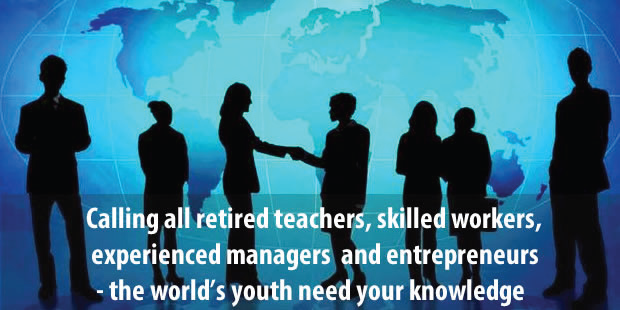 |
Future of Education
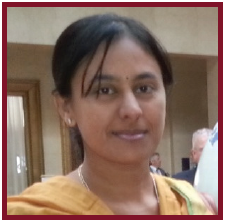 Janani Harish Janani Harish Internet and Communication Technologies will be vital in the future. Online courses will grow in number and influence. MOOCs hold great promise, and will be accepted by students, universities and employers. However, there will be a great many experiments made, to move away from the thousand-year-old lecture model that classroom lectures, and even many online courses, are largely based on. They will also need to strike a balance between automating processes to handle students in thousands, while delivering personalized authentic learning opportunities. According to e-learning and distance education expert Tony Bates, online learning will become so integrated with teaching and learning that no one will be talking about online learning as such. It will be like talking today about whether students should use computers.
Technology will integrate itself into all aspects of education. Gadgets of every size will become tools of learning. Gaming will be widely adopted. The 2013 NMC Horizon Report sees the pervasion of mobile devices and wearable technology in the future of education. Glasses, watches, wristbands, even clothes will become smart, with the aim of making people smarter.
The college campus and classroom will evolve. The purpose of the physical campus will be reevaluated when compared with the more flexible, convenient and affordable online education. Consequently, universities and the role of teachers will undergo major changes. Universities will take to e-learning to make themselves sustainable. Education will become more student-centered. Students will enjoy a greater choice of courses. Content will be better suited to their goals. The revolution that the printing press sparked when it liberated knowledge from the hand-written and chained library books will be consummated as
|
knowledge is altogether freed from all physical medium. Open educational resources will make knowledge wholly free. Students will not pay for content, but for services such as guidance and support. This will lead to new financial models. Assessment and evaluation of online learning will need to improve to match the pace of growth seen in other aspects of the field.
Another major trend representing a new paradigm in education will be the customizability of curriculum and content to individual needs as an increasingly available feature. The future will be about choices – choice of subjects, delivery method, schedule, evaluation, certification, cost. Learning will be from peers as much as from teachers. Cross-, trans- and interdisciplinary approaches to teaching, learning and assessment will become prevalent. Lifelong learning will become a necessity. Martin Luther King Jr. believed that ‘Intelligence plus character– that is the goal of true education’. The need for values in education will be recognized and acted upon.
Not all changes however, will be desirable or positive. The high demand for courses more directly related to employment will result in science, technology, finance and business eclipsing the liberal arts. The crucial role of arts in personality development, honing students’ capacity for accomplishment and understanding of life will be overlooked in an effort to cut costs and improve the profitability of institutions. As educators and institutions hand over more power to students, the inevitable tendency to exploit the power and freedom will result in many new, unwanted consequences – online identity theft, the use of sophisticated technology to cheat in exams, courses and certifications with dubious quality.
In 1843, Henry Ellsworth, the US Patent Office Commissioner, said “The advancement of the arts, from year to year, taxes our credulity and seems to presage the arrival of that period when human improvement must end”. The advancement seen over the next 170 years is capable of making not only Ellsworth but even us stagger somewhat. Terabytes are replacing Gigabytes in common conversation today. Similarly, the future of education may be guarded by the veils of the unmanifest today, but we can safely say that in the future, education will teach students not what to think, but how to think.
Janani Harish
Associate Fellow, World Academy of Art & Science;
Research Associate, The Mother’s Service Society
|
 |
Lifelong Learning
|
Education and employment constitute a double-helix of mutually reinforcing activities. The traditional model of higher education as a full time engagement in a physical institution and a prerequisite to career fostered a system in which education precedes employment. That model is no longer necessary or effective.
More and better quality education is the essential foundation for productive work in the increasingly complex environment of the 21st century. Work experience converts theoretical knowledge and raw skills into finely tuned, mature human capacities.
The rapid pace of social and technological change, the extension of the life span and working career, the increasing frequency with which people change their employment and even their career paths make it necessary to transform education from a separate, discrete stage in human development preceding career to a parallel track in which education and employment proceed side by side throughout the course of life.
Lifelong learning is the “ongoing, voluntary, and self-motivated” pursuit of knowledge. Education need not end with a bachelors, masters or doctoral degree; it can be an open-ended pursuit throughout life. The increasingly complex nature of work in a technologically sophisticated, rapidly changing world necessitates that training and education be continuous and on-going.
“The high-tech information society is, by its very nature, a changing society that is continuously requiring the mastering of new information and new techniques usable in occupational pursuits. We have, since the early 1960s, been talking about “life-long”, “permanent”, or “continuing” education which means that no matter how much formal education a person has been able to acquire at the beginning of his or her life, relearning and new learning has to take place continuously throughout the rest of this person’s life. Today, in some countries, the costs incurred by enterprises for the upgrading of the competencies of their personnel are of the same order of size as for the entire public system of education” (Torsten Husén, “Education by the Year 2025”, 1999-2000)
|
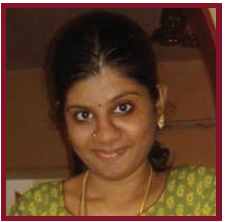 Ranjani Ravi Ranjani Ravi
Fostering Lifelong Learning
Lifelong learning can be fostered in these ways:
- Shift away from education as a preparation for work towards the concept of education as lifelong learning.
- Preparation for career should include essential skills for problem solving, teamwork, communications and interpersonal relations.
- Stimulate active rather than passive learning and encourage students to become critical, creative thinkers, with the capacity to go on learning after
their college days are over.
- Stimulate curiosity in the student and encourage questions.
- Respect diverse talents and ways of learning.
The primary objective of education should be to create environments and experiences that bring students to discover and acquire knowledge for themselves, to make students members of communities of learners that make discoveries and solve problems.
Ranjani Ravi
Junior Fellow, World Academy of Art & Science;
Research Associate, The Mother’s Service Society
|
 |
Game-based Learning

 Vani Senthil Vani Senthil “Anyone who tries to make a distinction between education and entertainment doesn’t know the first thing about either,” said Marshall McLuhan. Being trapped in a boring lecture and coping with exam stress can be the worst nightmares for any student. Game-based learning offers a remedy. Computer games have become powerful learning tools to engage and motivate learners. Gaming elements such as incremental challenge, ample opportunity to master a skill before moving on to the next level, rewards, triggering creative thinking to deal with unprecedented challenges, freedom within a set context of rules, fun and immersion are used to educate and inform in an exciting and memorable way.
Soldiers, pilots, athletes, doctors and IT professionals all use computer simulation and gaming to practice their knowledge, visualize the consequences of their choices and explore different combinations of events in a visceral way. A virtual medium that imitates real-life processes is a perfect environment to acquire skills that can scale out in a cost-effective manner. Setting up a fake hotel
|
or creating a realistic coal mine to give hands-on training to students can be costly and limited. Simulated games offer personalized, guided practice in a realistic environment to large numbers at a comparatively low cost. This opens up new channels to give high-quality skills training to the diverse and secluded population around the world.
Games and simulations can become the new forms of apprenticeship in the digital era. Hands-on learning through simulations has been demonstrated to improve attitudes, engagement, motivation, decisionmaking and problem solving skills. Multiplayer games enable collaborative learning and develop social skills as students actively interact with their peers.
Ultimate Team Play is a simulated game used by Hilton Garden Inn to train its employees on improving guest satisfaction. The game is played from a first-person perspective in a 3-D virtual hotel where players choose their response to various guest related scenarios. Training is offered for positions in housekeeping, food and beverage, engineering and maintenance and the front desk.
|
In India, IL & FS Skills is an organization that combines simulated lessons and projects to train 100,000 rural youth a one year. Though the training centers are dispersed across the country, they are able to transmit consistent good-quality training with little faculty intervention. Technology overcomes the barriers of infrastructure, cost and shortage of faculty.
When games are used as learning tools, performance of each student is easily tracked and evaluated with active data collection. Data analysis enables adaptive learning, which takes into account prior knowledge, preferences, needs and even learning styles of the student. Personalized learning paths, processes and
content maximize the effectiveness of the learning experience.
Games bring together the academic and the industrial worlds in a virtual medium that is of great interest to the students. Skills training can be industrialized by effectively using simulations to teach hands-on experience.
Vani Senthil,
Research Associate,
The Mother’s Service Society
|
 |
Officers & Charter Members of WUC
WUC seeks to become a global network and umbrella group working to facilitate educational partnerships and linkages with interested stakeholders with shared goals, to explore creative solutions to enhance the reach, quality and relevance of higher education globally, and to provide a platform for new ideas, trans-disciplinary perspectives and integrated courseware intended to address global opportunities and challenges.
Officers elected by the Board on February 14, 2014
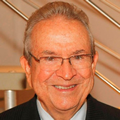
Heitor Gurgulino
de Souza
PRESIDENT |
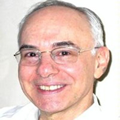
Garry Jacobs
CHIEF EXECUTIVE
OFFICER |

Alberto Zucconi
SECRETARY GENERAL
& TREASURER |
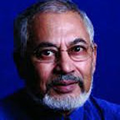
Winston Nagan
CHAIR, PROGRAM
COMMITTEE |
Founding Charter Members of the Consortium
|
An international NGO founded by former UNESCO Director General Federico Mayor Zaragoza – represented on WUC Board by Federico Mayor.
An international association of more than 800 present and former university presidents, vice chancellors and rectors
from around the world – represented on WUC Board by Neal King, President.
The largest psychological counseling and post graduate psychological education and training institution in Italy founded
by Carl Rogers and Alberto Zucconi in 1979 – represented on WUC Board by Alberto Zucconi, President of IACP.
|
An international NGO founded in 1993 by former Soviet President Mikhail Gorbachev with offices in more than 30 countries – represented on WUC Board by Alexander Likhotal, President.
An international NGO to promote global peace and stability by intercultural relations in Berlin – represented on WUC Board by Emil Constantinescu, President.
A social science research and educational institution founded in 1970 based in Pondicherry, India – represented on
WUC Board by Garry Jacobs, Vice President.
|
An international think tank established by eminent intellectuals in 1960 with more than 600 members from 80 countries – represented on WUC Board by Heitor Gurgulino de Souza, President of WAAS and former Rector, United Nations University; Garry Jacobs, Chief Executive Officer of WAAS; Winston Nagan, Chairman of the Board of Trustees of WAAS; Ivo Šlaus, Honorary President of WAAS; and Alberto Zucconi, Member of the Board of Trustees of WAAS.
Participating Institutions
|
|
An international association of 170 universities based in Dubrovnik, represented by Sigmund Gronmo, Chair of the Council, and Ivo Šlaus, Vice-Chair.
|
An international center of knowledge and education in Alexandria, Egypt – represented by Ismail Serageldin, Director.
|
|




